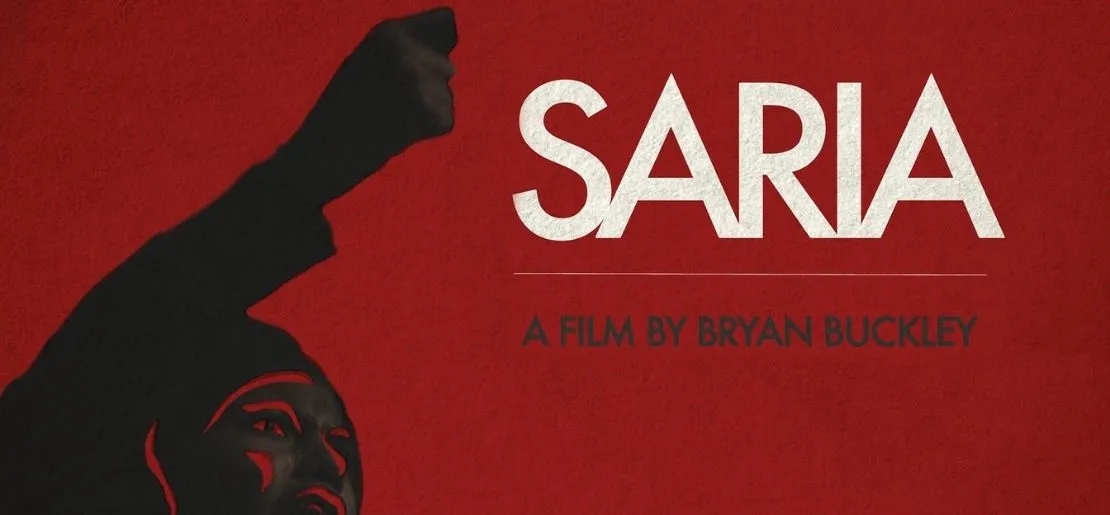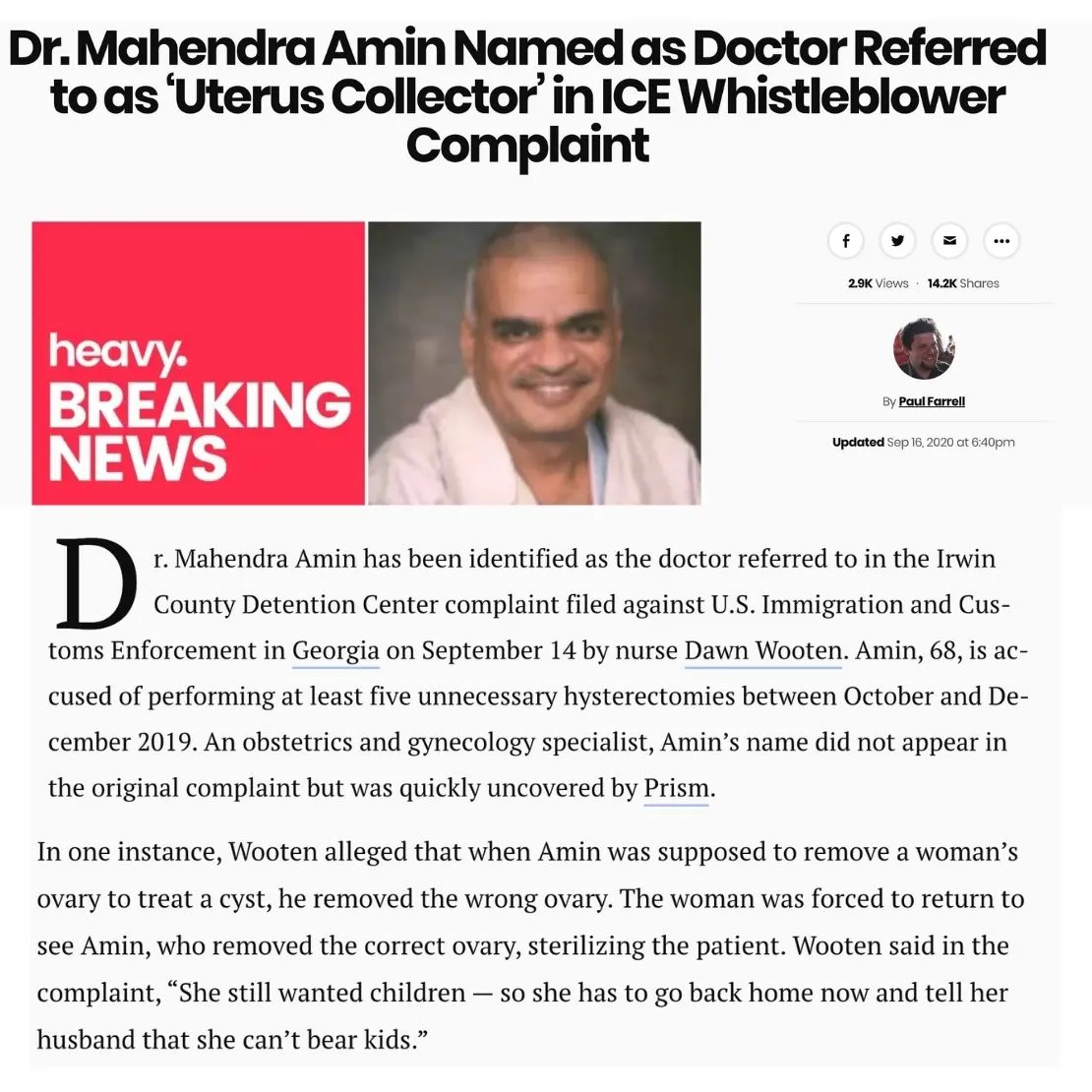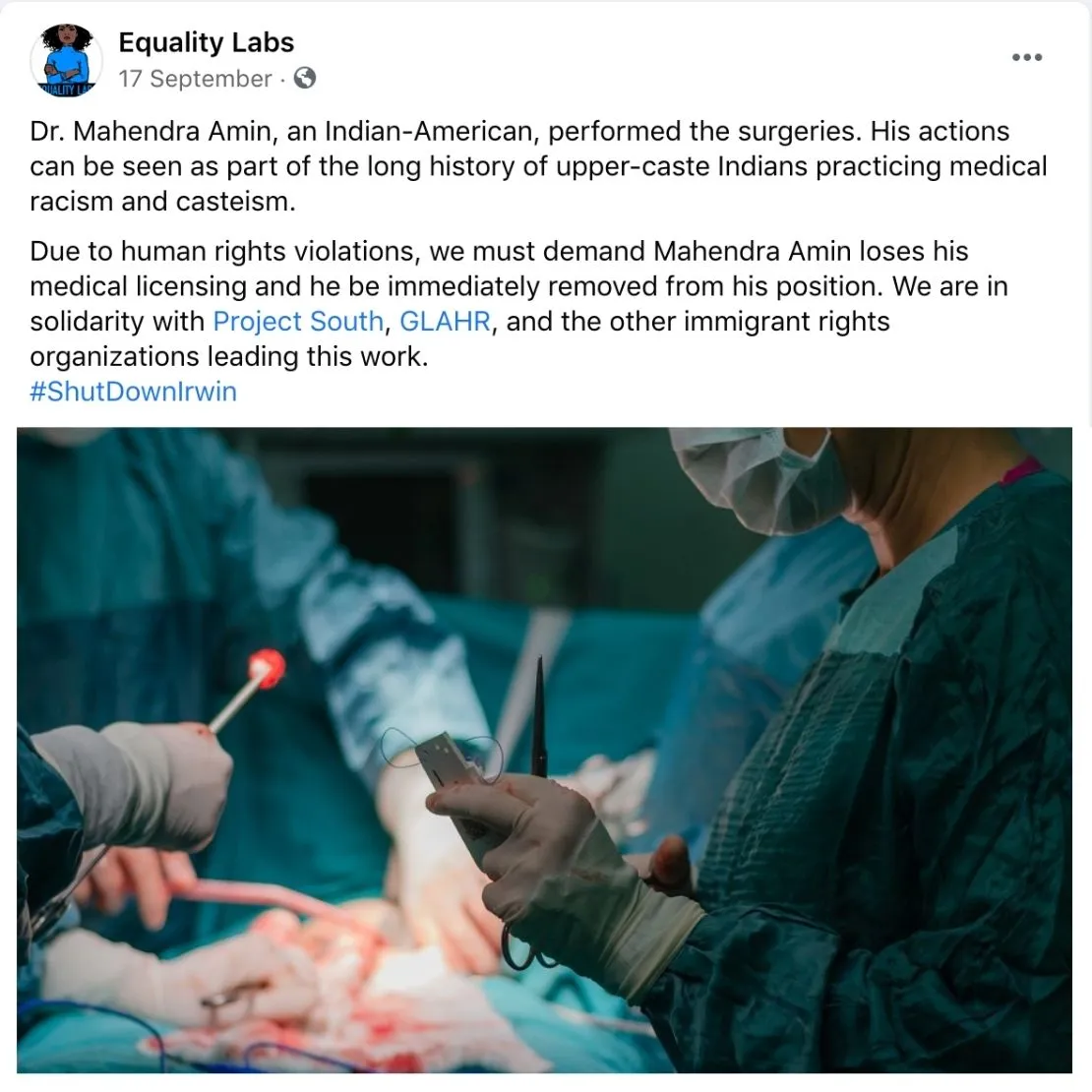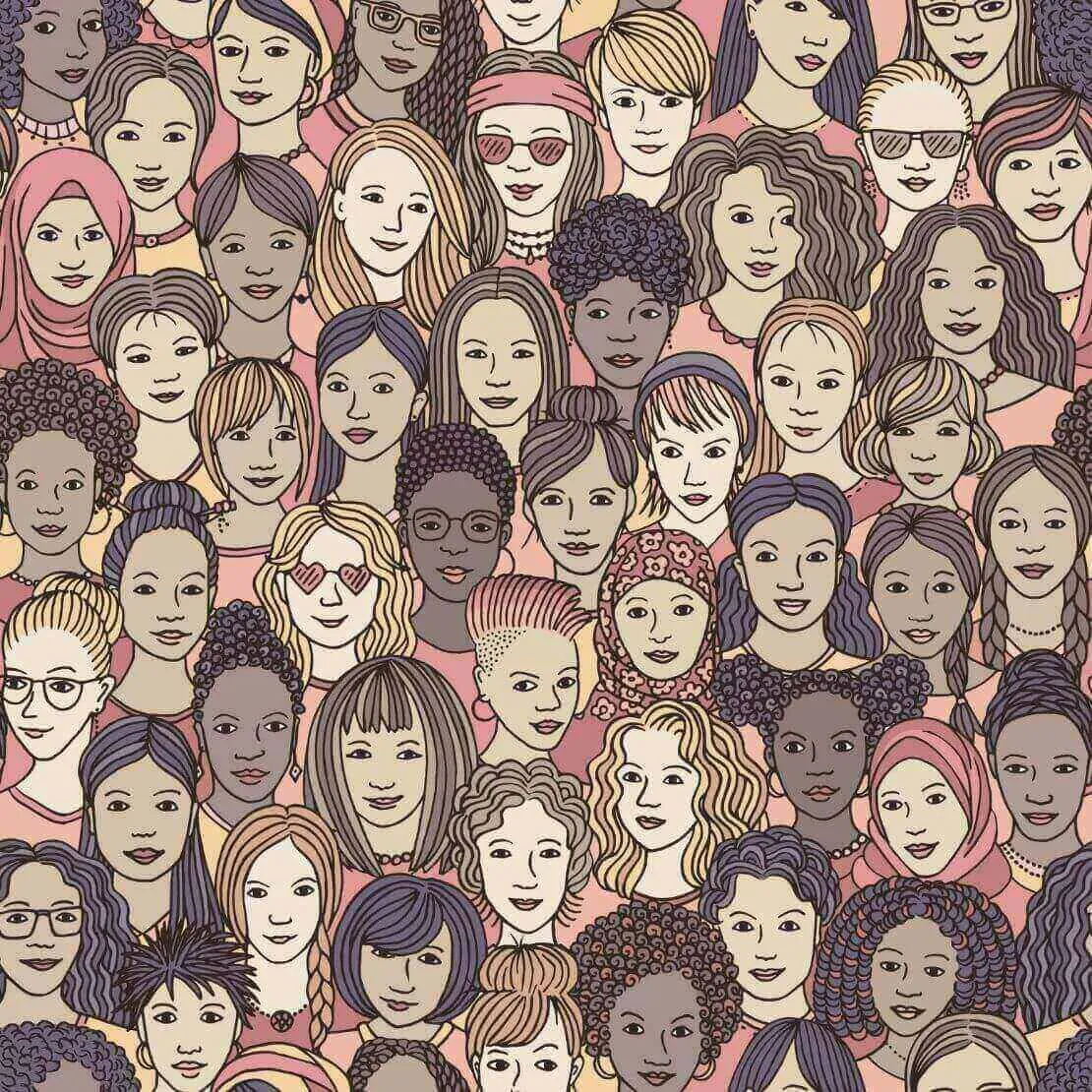Collective education and amplification of Dalit voices is required in order for the interlinked struggles against ICE, Trump, Modi, rape culture, to hold water.
*Disclaimer from the writer: I am a Savarna Indian American and therefore cannot speak to the lived experiences of Dalits. For direct engagement with Dalit scholars and activists, follow Suraj Yengde, Equality Labs, Dalit Diva, Yashica Dutt, Kiruba Munusamy, Dalit Feminism Archive, Dalit Women Fight, Dalit Desk and many more on Instagram.
Watch our recent video interview with Kiruba Munusamy on 'The Problem with the Upper Caste Media and Diaspora' here.
Facing emotional and physical violence inside a Guatemalan orphanage, two sisters grapple with daily threats to their survival in the 2020 Oscar nominated short film Saria. The film highlights the silent predicament of girls whose struggles are not highlighted in the mainstream media. In a particularly striking scene, the sisters sit on the floor, watching the Women’s March broadcasted on the television ahead, the message painfully clear: hundreds of Americans marching in the name of women were not marching for them. The sisters remained in the shadows while the outrage of a selective, privileged group of women stole the spotlight.

This scene was so much more than a depiction of two forgotten girls. It represents all those who popular American feminism has forgotten. White feminism has taken on a different dimension in the form of corporatized, co-opted messaging, characterized by “leaning in” and wearing pussy hats as an act of resistance. In the last few weeks, the response (or lack thereof) of mainstream feminist voices to flagrant crimes against women makes it all too clear: the mainstream feminist movement reserves its outrage for a select few. We must collectively reshape our feminist solidarity to uplift marginalized women. Although violence against women is a continuous, daily reality, examining two recent instances throws this into sharp relief.
Georgia
Earlier this month, a whistleblower revealed that immigrants detained by ICE at Irwin county detention center in Georgia were forced to undergo unnecessary hysterectomies. The New York Times reported the case of Wendy Dowe, who felt pressured to consent to a gynecological procedure after being awoken by guards and dragged to a hospital in handcuffs. The Times interviewed 16 women who reported concern over similar experiences, all of whom were treated by Indian-American gynecologist, Mahendra Amin, who the whistleblower nurse referred to as “the uterus collector.” Although his lawyer did not specify the number of procedures Amin performed, Amin confirmed that he did conduct procedures on immigrant women from the facility with the detention center’s approval. The Times referred to Amin as the center’s “primary gynecologist.” Other doctors reviewing the case stated that Amin had repeatedly overstated the need for hysterectomies and was “overly aggressive in his treatment.” The Intercept noted that one woman requested deportation rather than risking losing her uterus.

Project South, a social justice-oriented organization in Georgia, was one of many groups that filed the official complaint on behalf of whistleblower Dawn Wooten. In addition to hysterectomies, the complaint revealed that immigrants were denied COVID-19 testing, and that medical staff deliberately falsified and destroyed sensitive medical information to obscure justice. These horrific human rights abuses draw upon a long tradition of forced sterilization in the United States, where medical abuses have disproportionately impacted Black, Latina, and indigenous women as well as incarcerated and disabled women.
In addition to reflecting a continuation of this thread of American history, Amin’s participation in the forced sterilizations continues medical casteism inflicted by upper castes in India. Equality Labs demanded that Amin’s license be revoked, and that he be removed from his position. The silence of major news outlets on this issue is noticeable, as is the omission of Amin’s upper-caste identity.

As members of the South Asian diaspora, it is imperative to hold Amin to the highest standard of accountability while recognizing the implications of caste privilege in our own communities. While South Asians have skin in the game on the issue of immigration, we should be particularly enraged in this case, when a member of our own community was directly responsible for inflicting harm upon fellow immigrants. Amin remains largely unscathed in the aftermath of the whistleblower’s leak, and the media discussion has ignored the implications and role of his caste. In addition to fighting for immigrant justice and abolishing ICE, upper-caste South Asians must confront the ugly consequences of privilege, and ensuing complicity in white supremacy, that feel invisible to some.
Hathras
Thousands of miles away in Hathras district in Indian state Uttar Pradesh, a 19-year old Dalit girl was gang-raped by four upper caste Thakur men. Suffering from paralysis, trauma, and debilitating injury, she died on September 29th and her body was cremated without her family’s consent. Her parents reported being locked up while their daughter was burned using petrol, out of accordance with Hindu rituals and before they could say goodbye to their daughter. Police and other authorities not only failed to pursue justice, but also denied that the rape was linked to caste, as did many media outlets with largely upper-caste journalists. The government of Uttar Pradesh has even hired a PR firm to deny the rape altogether to foreign media.
To portray this as an act of gender-based violence without highlighting the casteist motivation is wilful neglect. Dalit scholar Suraj Yengde writes that Dalit women face the “triple burden” of gender bias, casteism, and economic oppression. According to Equality Labs, caste apartheid is specifically enforced through women’s bodies via stripping, burning, rape, hanging, and all manner of other crimes. With 2 out of 3 Dalit women experiencing caste-based violence, they write that “the culture of Caste is a cultural of rape…. The time for talking about violence against women in India without naming Caste Apartheid is over.” As a number of Dalit scholars and activists have noted, caste is not erased upon immigration outside India - the recent Silicon Valley case shows just how present caste oppression is in the United States. Because the average American may be unfamiliar with the dynamics and context of caste, upper-caste South Asians in the diaspora must actively educate ourselves on the issue and spread awareness where such coverage has utterly failed.
Firstpost reminds us that caste-based sexual violence is far from new. Like sexual crimes against Black, Latina, and Indigenous women, such atrocities have been perpetrated for centuries as a mean to control individual women’s bodies and uphold a larger system of apartheid. This is inextricably linked to the lack of accountability in the system, due to the participation and complicity of police and the failure of upper-caste members of civil society to take up the issue.
Firstpost writes that data on caste-based gender crimes are woefully lacking, but it is nonetheless clear that the conviction rates are strikingly low. Just as it is imperative to sustain outrage regarding the lack of charges against cops who killed Breonna Taylor, our reaction to the brutal gang rape and murder of Manisha must be sustained and relentless in the pursuit of justice for her family, in addition to larger structural change that prevents similar acts of violence from recurring. Although #BlackLivesMatter has spurred a national conversation about white privilege and the role of allyship, savarna (caste-privileged) South Asians are sorely behind on this stage of self-reflection. The total invisibility of caste privilege to those who have it, much like a white person who has never been forced to confront the implications of their whiteness, makes it especially pernicious. Collective education and amplification of Dalit voices is required in order for the interlinked struggles against ICE, Trump, Modi, rape culture, to hold water.
The Missing Wave
Throughout history, violence against women has operated in different ways depending on one’s color, caste, and class. To speak of women as a political class can be useful in the context of the patriarchy writ large, but often the blanket term erases critical differences in our lived experiences. Often, white women in corporate spaces dominate conversations of gender equality in their workplaces and, correspondingly, in the most widely-read platforms. Yet some of the most horrifying human rights abuses that occur around the world, including the two highlighted here, are rooted in systems that include, yet exceed, violence against women. Racism, casteism, and economic oppression create the circumstances for devastating violence that liberal feminist discourse often neglects or downplays.

What does effective feminist solidarity look like? For starters, it should be global and acknowledge the standpoints and lived experiences of all involved. Moreover, it should draw upon the long tradition of Black, Latina, Indigenous, and Dalit women who have been speaking out against such oppression for generations. Intentionally diversifying our social media feeds and content consumption is necessary, as is contributing to mutual aid to show up for women in our communities. Most importantly, although nobody is perfect, our outrage cannot be selective. It is tempting to slide into the narrative of “leaning in” rather than delving into the intense discomfort of being both oppressed and oppressor. It is all too easy to center issues at home while neglecting the nuances of caste and class privilege as a savarna person of color in America.
At its core, global feminist solidarity must amplify and uplift the voices of women who face compounding levels of structural violence. In India, the state and parts of society conspire to de-link caste from gender-based violence, and to understate Dalit oppression. Vocal outrage and social movements, particularly from the diaspora who are privileged to speak out openly, can help to highlight and thus dismantle caste apartheid. Recalling the scene from Saria, we must all strive to create a march that truly everyone can walk in, not just one that can be televised with the appearance of inclusivity. Representation alone is not liberation, and the mountain of patriarchy cannot be surmounted without confronting the deep intersections of race, caste, and class.